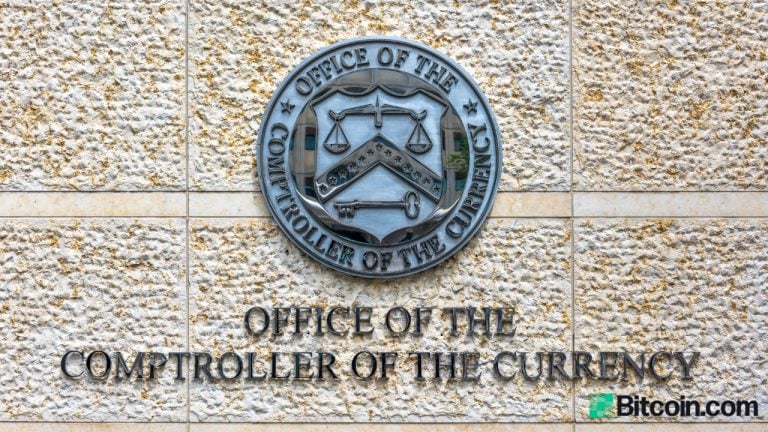
The new Acting Comptroller of the Currency, Michael Hsu, has requested a review of the cryptocurrency standards established by the top U.S. banking regulator. He is also urged to “reassess any conditional national trust charters and halt the approval of any additional charters to nonbank entities” during the review.
Top Banking Regulator Reviewing Crypto Policy
Michael Hsu, the new administrator of the federal banking system and chief executive officer of the Office of the Comptroller of the Currency (OCC) has requested a review of the regulator standards for cryptocurrencies. Hsu took office on May 10.
The OCC is an independent bureau of the U.S. Department of the Treasury. It charters, regulates, and supervises all national banks and federal savings associations as well as federal branches and agencies of foreign banks.
Hsu revealed his plans for cryptocurrency before the Committee on Financial Services Wednesday. “At the OCC, the focus has been on encouraging responsible innovation,” he began. “For instance, we created an Office of Innovation, updated the framework for chartering national banks and trust companies, and interpreted crypto custody services as part of the business of banking.”
The new Acting Comptroller noted, “I have asked staff to review these actions,” elaborating:
Shortly after I started, I requested a review of key regulatory standards and matters pending before the agency. Those items include … interpretative letters and guidance regarding cryptocurrencies and digital assets, and pending licensing decisions.
“For each, the review is considering a full range of internal and external views, the impact of changed circumstances, and a range of alternatives,” he clarified.
Former Acting Comptroller Brian Brooks previously warned that some of the pro-cryptocurrency guidance issued by the OCC under his leadership would be rolled back.
Meanwhile, Senator Sherrod Brown, who serves as Chairman of the Senate Banking, Housing and Urban Affairs Committee Sherrod Brown, sent Hsu a letter on Wednesday regarding cryptocurrency regulation issued by the OCC.
Brown raised concerns “about a number of national trust charters granted by the prior leadership of the OCC.” He wrote: “Shortly after former Acting Comptroller Brian Brooks left the OCC to join Binance, a cryptocurrency exchange, several nontraditional firms that specialize in digital and cryptocurrency activities – including Paxos, Protego, and Anchorage – received conditional national trust charters from the OCC.”
The senator believes that “the OCC is not in a position to regulate these entities comparably to traditional banks,” emphasizing:
A firm that cannot meet the rigorous requirements applicable to other banks should not be allowed to present itself to the public as a bank.
Referencing that “Former Acting Comptroller Brian Brooks actively encouraged cryptocurrency companies to apply for a national trust charter because it had ‘relatively easy requirements’ and is ‘just a faster charter to get,'” Brown asserted that “Not only could these charter approvals lead customers to underestimate the risks related to these assets, but it could undermine faith in the safety and stability of the entire banking system.”
The senator’s letter to the Acting Comptroller concludes: “I request that you reassess any conditional national trust charters and halt the approval of any additional charters to nonbank entities while you review,” adding:
I urge you to review the procedures and guidelines followed within the OCC regarding the evaluation and approval of the Anchorage, Paxos and Protego charters to ensure that the OCC’s supervision and licensing standards remain both rigorous and equitable among charter applicants.
Do you think the OCC will come up with more strict crypto regulations after the review? Let us know in the comments section below.
Comments
Post a Comment